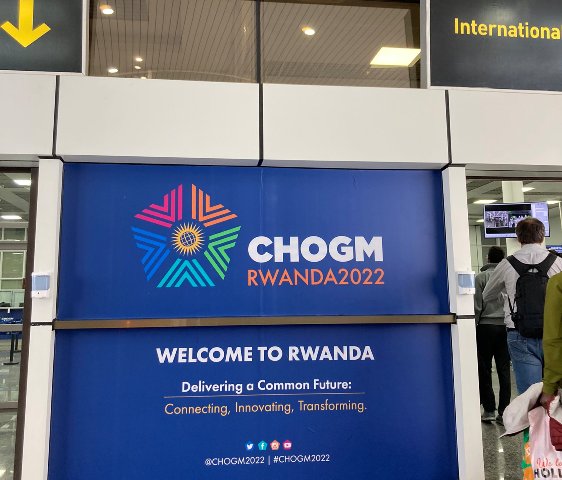
My bags are packed and I am ready to go to Rwanda for the 26th Commonwealth Heads of Government Meeting; last held in Africa in neighbouring Uganda in 2007, it is only the sixth time that an African country has played host. As the smallest landlocked central African republic in the Great Lake Regions, just below the Equator, with a projected population of nearly 13 million, the Republic of Rwanda’s modern history is defined by the 1994 genocide when an estimated one million Rwandans were killed in 90 days; over thirty years later, after its remarkable recovery, it is now a favoured tourist destination. Rwanda has the distinction of being the youngest member of the 54-member Commonwealth, having only joined in 2009. It also has the unusual status of never having been a colony of the United Kingdom; instead, before decolonisation, it was firstly part of German East Africa; later, in the aftermath of world war, it was administered by Belgium as a League of Nations-mandated trust territory (together with the southern part, now Burundi), forming part of Francophone Africa. Until President Paul Kagame changed the national language to English, most Rwandans spoke French, in addition to their own indigenous languages of Kinyarwanda and Swahili.
The theme of this year’s CHOGM is ‘Delivering a Common Future: Connecting, Innovating, Transforming.’ As usual, several forums and side events are taking place before the formal opening of CHOGM on Thursday 23rd June. As we all know, because of Covid-19 this particular CHOGM has been a long time coming: instead of the normal two-year interval between the meetings, it’s been over four years since the last CHOGM in London in April 2018 hosted by the United Kingdom. Then, as Chair of the Editorial Board of The Round Table, with full accreditation, I used my ‘super’ pass to gain entry to all the forums, including the opening ceremony in Buckingham Palace, when the Queen memorably stated that she wished the Prince of Wales to be her successor as Head of the Commonwealth; helped by my bicycle I reached the locations speedily, stealing a march on the lines of taxis waiting to deposit delegates and attendees at the Queen Mother’s Conference Centre where three out of the four forums (Peoples, Youth, Women’s) were being held. And I must have made it in record time to the Business Forum in the Mansion House, speeding down the Strand past colleagues stuck in traffic jams.
My destinations in Kigali will be more complex. The media centre is at the Kigali Convention Centre, on KG2 Roundabout, while ‘badge collection’ is at the BK Arena nine or 15 minutes by car (depending on the traffic) from the Convention Centre. For the Women’s Forum I need to go to the Serena Hotel, KN 3 Avenue, sixteen minutes by car or one hour and 22 minutes’ walk from the Convention Centre. (I am reliably informed cycling is not available although I could hire a taxi motorbike!). The Youth Forum is being held in the Intare Conference Centre over half an hour’s drive in the opposite direction from the Convention Centre (nearly three hours on foot!). So far, although I am accredited and registered, I haven’t yet discovered where the Peoples Forum – with its uplifting theme ‘Our Health, Our Planet, Our Future’ – is going to be held. It will, according to the organisers, be ‘historic …’ as I shall be joining the largest gathering of civil society in the Commonwealth – with over 250 delegates.
Given the distances between locations, there is little expectation that the forums will be as collaborative as they were in London, like when, on ‘super’ Tuesday, the Prime Minister of the UK, Theresa May MP and the Secretary-General, Baroness Patricia Scotland, together with business magnate, Bill Gates, addressed a joint gathering of all the forums. Attendance of the Business Forum, comes at an additional cost of $450, and since our RT colleague, Mark Robinson, will be there, I shall be relying on him to give his report.
As for the agenda, as usual there are important themes to the sessions, expressing the aims of the Commonwealth, its democratic ideals and its inclusivity. So, logistics aside, there is much to absorb, and I am looking forward to seeing the beauty of ‘the land of a thousand hills’ and home of the mountain gorillas. But I’m also conscious that success is a goal which can be a mirage and there are issues on the horizon, – the challenge to the Secretary-General’s tenure, complaints about Rwanda’s human rights record and the furore over the planned transportation of refugees (mainly from Iraq and Syria) to Rwanda from the United Kingdom – which might well overshadow the achievements.
Victoria Schofield is the chair of the Round Table editorial board.
Related articles:
London notes: Diary from the Round Table Chair



